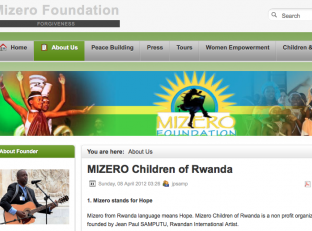Jean-Paul Samputu's nightmare began after the Rwandan genocide.
Samputu, a musician, returned from Kenya to his native Rwanda and discovered that several members of his family had been murdered.
They were among the at least 800,000 people killed in the Rwandan Genocide in 1994. Samputu's family members were not murdered because of anything they had done or said, but they were not randomly chosen victims either. They were targeted because they were members of the Tutsi ethnic group.
The deaths of his loved ones were bad enough, but the story got worse when Samputu learned that it was his childhood friend Vincent, a Hutu, who had killed his family.
Caught in a tangle of emotions, he turned to self-destructive behavior. He used drugs and alcohol to dull the pain and hasten the end. “I was waiting to die,” he says.
Years later, in a last-ditch effort to turn his life around, Jean Paul decided to pray for understanding, strength and courage. He believes that made the difference, teaching him the “power of forgiveness.”
“My life came back because I decided to forgive the guy who killed my parents,” says Jean-Paul.
From that moment on, he started using singing voice to educate his audience about love, peace and reconciliation. He sings about both the atrocities of genocide and the intrinsically human need to forgive.

